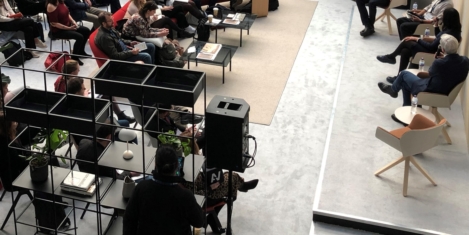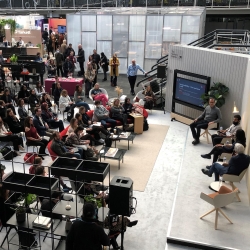September 21, 2022
EDGE Valley set to transform Amsterdam business district
 Real estate developer EDGE has announced the official opening of Valley, the high-rise designed by MVRDV, which was recently declared the world’s best new skyscraper by the Emporis Awards. The firm claims that the addition to Amsterdam’s business district will mark a shift in thinking for urban development as a whole, transforming the Zuidas district into a vibrant and lively urban quarter. The fully leased 75.000-square-meter development, was officially opened in the presence of Reinier van Dantzig, Alderman for Housing and Urban Development, Municipality of Amsterdam, the Board of RJB Group of Companies, Winy Maas, Founding Partner at MVRDV, Coen van Oostrom, Founder & CEO of EDGE and all parties involved in the project. (more…)
Real estate developer EDGE has announced the official opening of Valley, the high-rise designed by MVRDV, which was recently declared the world’s best new skyscraper by the Emporis Awards. The firm claims that the addition to Amsterdam’s business district will mark a shift in thinking for urban development as a whole, transforming the Zuidas district into a vibrant and lively urban quarter. The fully leased 75.000-square-meter development, was officially opened in the presence of Reinier van Dantzig, Alderman for Housing and Urban Development, Municipality of Amsterdam, the Board of RJB Group of Companies, Winy Maas, Founding Partner at MVRDV, Coen van Oostrom, Founder & CEO of EDGE and all parties involved in the project. (more…)


































August 25, 2022
How Microsoft’s social listening research highlighted changing attitudes to work
by Camila Angio • Comment, Technology, Wellbeing